Working in the office of the United Nations Secretary General, Heba Abdelatif was placed in charge of handling the organizational aspect of the UN Secretary-General’s engagement on Climate Change from 2008 – 2015. She subsequently led the organization of the very first UN Climate Change Summit attended by over 100 Heads of State and Heads of Government in 2008 and also led the organization of the 2019 UN Climate Action Summit. In 2022 she resigned from the UN and pursued her passion. She founded Nuba Arts, determined to bridge the gap between Africa’s local craftswomen and craftsmen and the global market, showcasing Africa’s authentic but often forgotten rich heritage, to the world. It was such a pleasure to hear her story.
Tell us a little bit about yourself. Your childhood.
Well, I am Egyptian, but very proudly Nubian. So I grew up in Cairo. I was born and raised in Cairo, but I grew up in a Nubian community area in Cairo, Egypt. And I was very lucky to have the best of everything. So I got the whole Nubian traditional way of living. Our whole lifestyle was Nubian because all the neighbours were Nubian too. And then my parents, although they were regular middle class, decided to really invest in my education and sent me to a French school. And that helped me to see the other side of the world also.
It was a very French school so everything was in French except for religion which was in Arabic. And then other members of the family traveled to Denmark. So it was only a few members of the family who remained in Cairo as the rest had moved to Denmark. So this was also another way to be exposed to the Western life as our parents, uncles and aunties made sure that all the cousins knew each other. They made sure that all the cousins could speak Arabic. So every summer we would either travel there or they would come over to Egypt. So my childhood was really full of activities, full of learning and it exposed me to the non-traditional way of a girl growing up in Egypt. I would certainly say that.
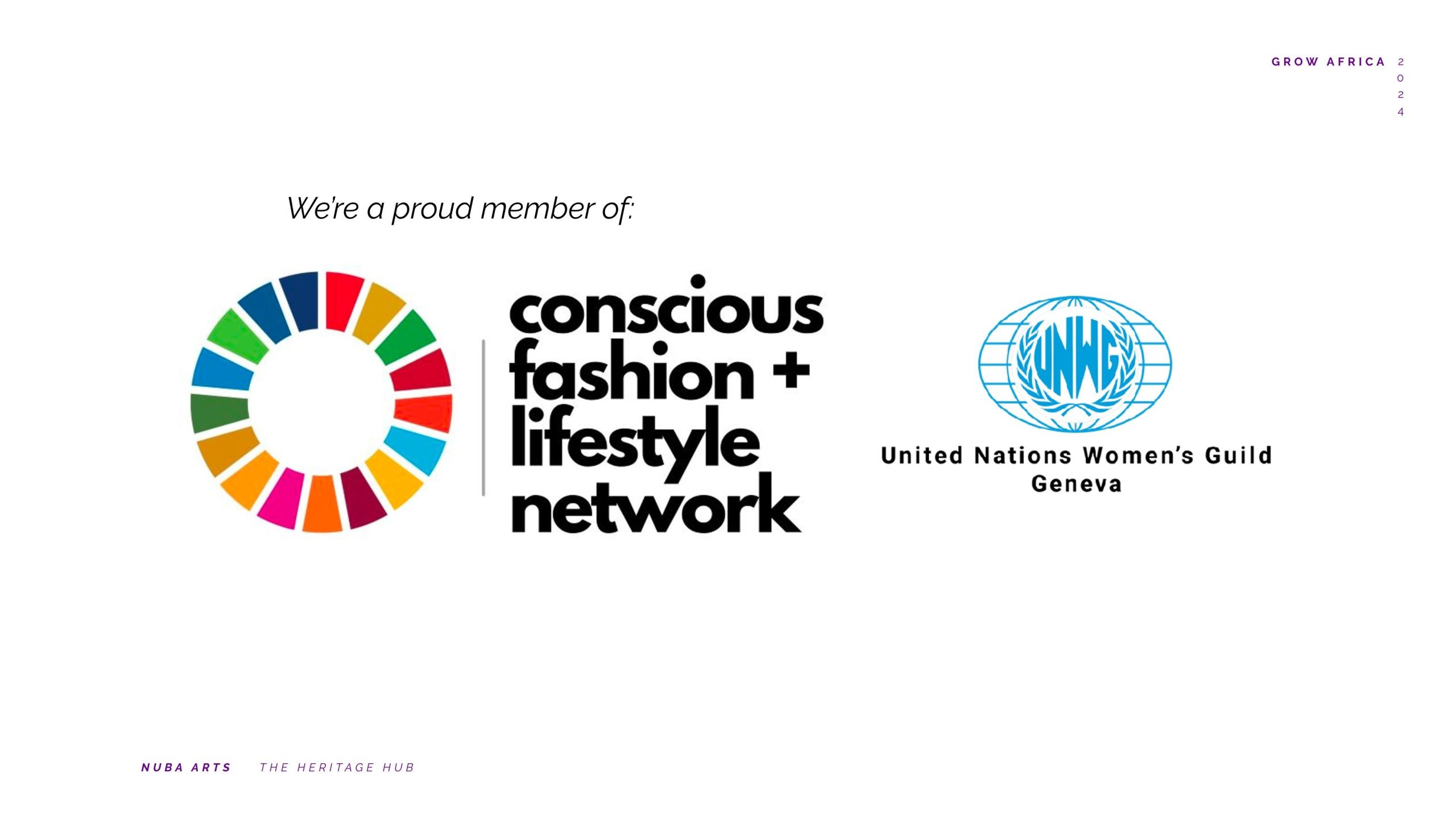
I also enjoyed the perks of my father being a boy scout as he put us in the girl scout and that gave us more interaction with the boys and opportunities to travel extensively within Egypt and learning more about the country’s history etc. It also helped to shape my personality as I made several lifelong friends.
Right now I think we are about 25 friends who grew up together and who are still very much in touch. So living the whole girl scout life, camping, waking up at 4 am, running three miles and traveling to Sinai at a time when there was no war – though we didn’t have all our land yet – we used to see the Israeli flag not too far away and so we grew up learning how not to be angry but to rather do something better to get what we want.
So this is more or less my childhood. And then I continued my life like a normal girl who attended the Faculty of Commerce, like everybody else. And because I could not afford attending the AUC, which is the American University in Cairo, I attended regular college but told myself that I would one day reach the western side. And this is how the minute I finished college, I decided to work in the travel industry. So three days after finishing college, I applied to work in a travel agency and got the job.
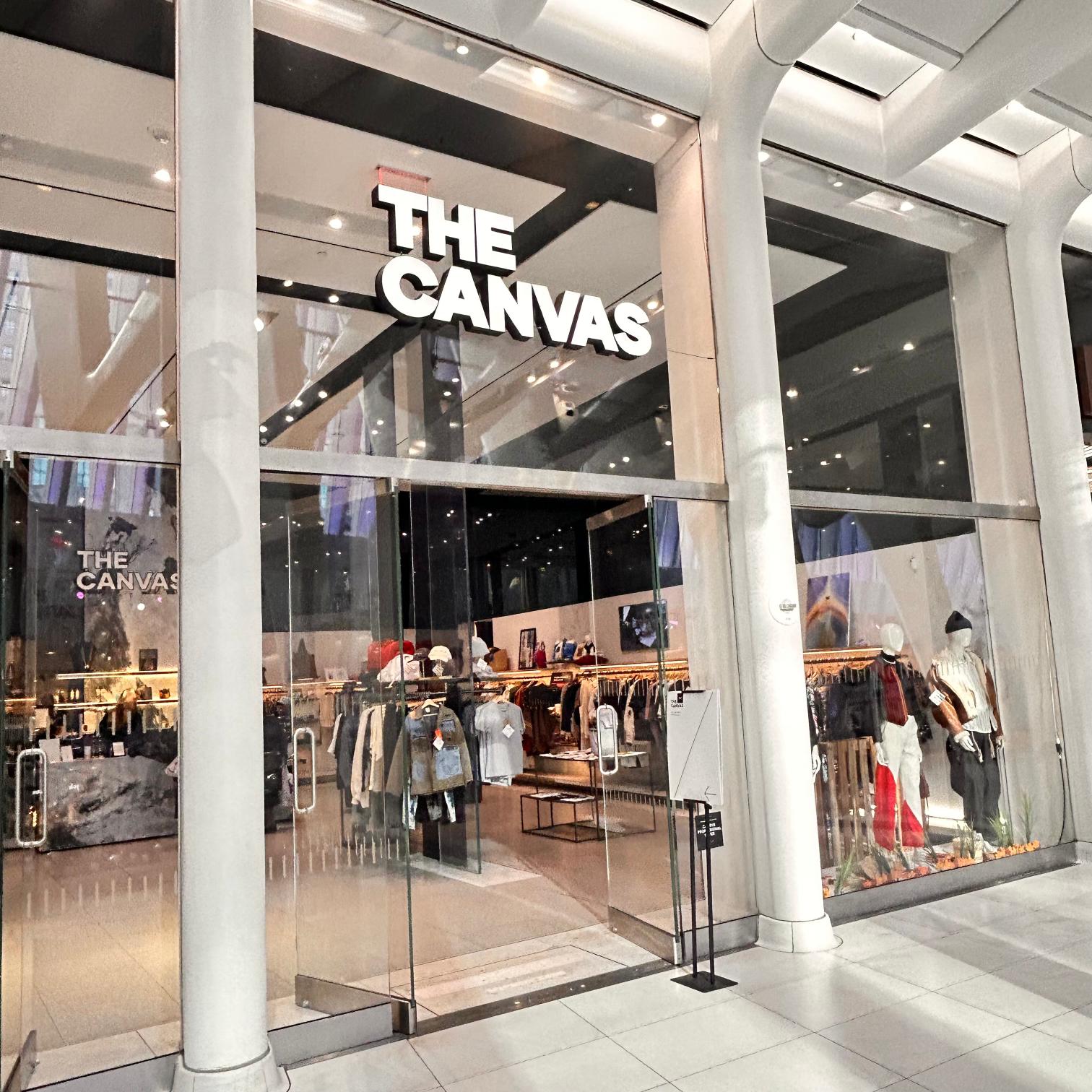
Having worked in the tourism industry yourself, would you say the tourism sector plays a major role in the Egyptian economy?
I think that the travel sector plays a major role in the world economy but speaking specifically to Egypt, yes, as the history, the pyramids, the monuments and all that contribute to making tourism the number two source of income to the Egyptian economy, after the Suez Canal, of course. But in my opinion, the travel sector doesn’t only provide leisure, it gives you the culture, it teaches you how people live and the better the hospitality we can give, the more influence we can have on others.
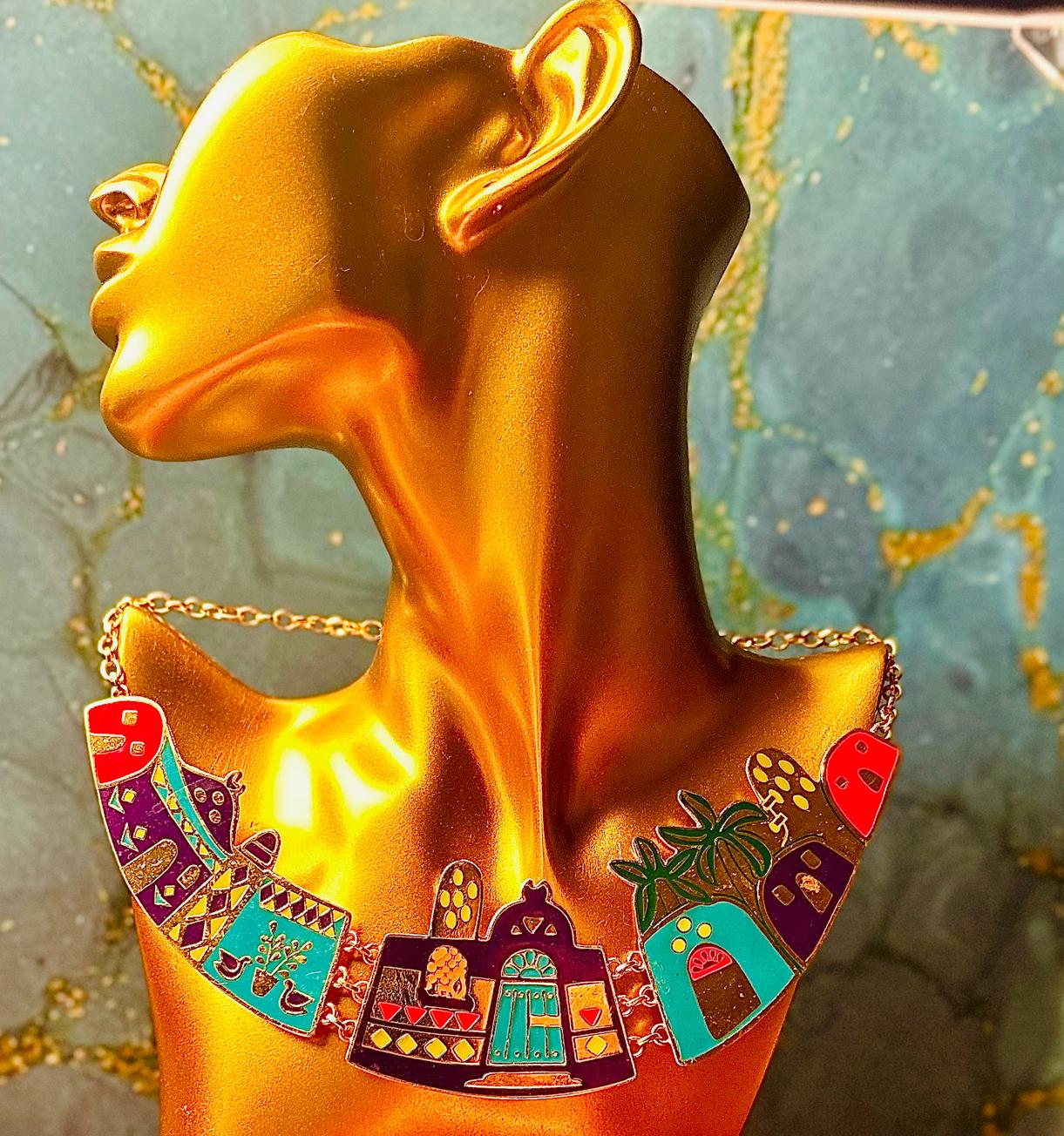
So when tourists came to Egypt, I always saw ourselves as ambassadors which meant we had to sell Egypt right. We had to make them know the good things from zero to ten rather than just telling them about the pyramids and about other national monuments, which is the regular way. So I am a great believer that not only Africa but in general there is great wealth centred around the travel sector which is yet to be discovered. The potential wealth of tourism in Africa is not limited to the pyramids and other monuments only. So yes, it’s a major, major, major mainstay of the economy but it should be way greater than it currently is. And this is our role to play as well. But I would like to add this also. Like I said earlier, I am Nubian and the fact is that all our real treasure is underwater. So when tourists visit Egypt they hardly see Nubian heritage because it’s mostly underwater. So, the only thing that’s Nubian that they see is Abu Simbel Temples, because it’s the only thing of Nubian heritage that was saved. Now, what I am getting at is that it’s not enough that the pyramids and other things are there in Egypt, it’s also important to get to understand who the people are. For instance, what does it mean to be Nubian? So this is one aspect of tourism that I took upon my shoulders, big time. So this is the other side of tourism that we should teach and show. The ones who are not so famous.
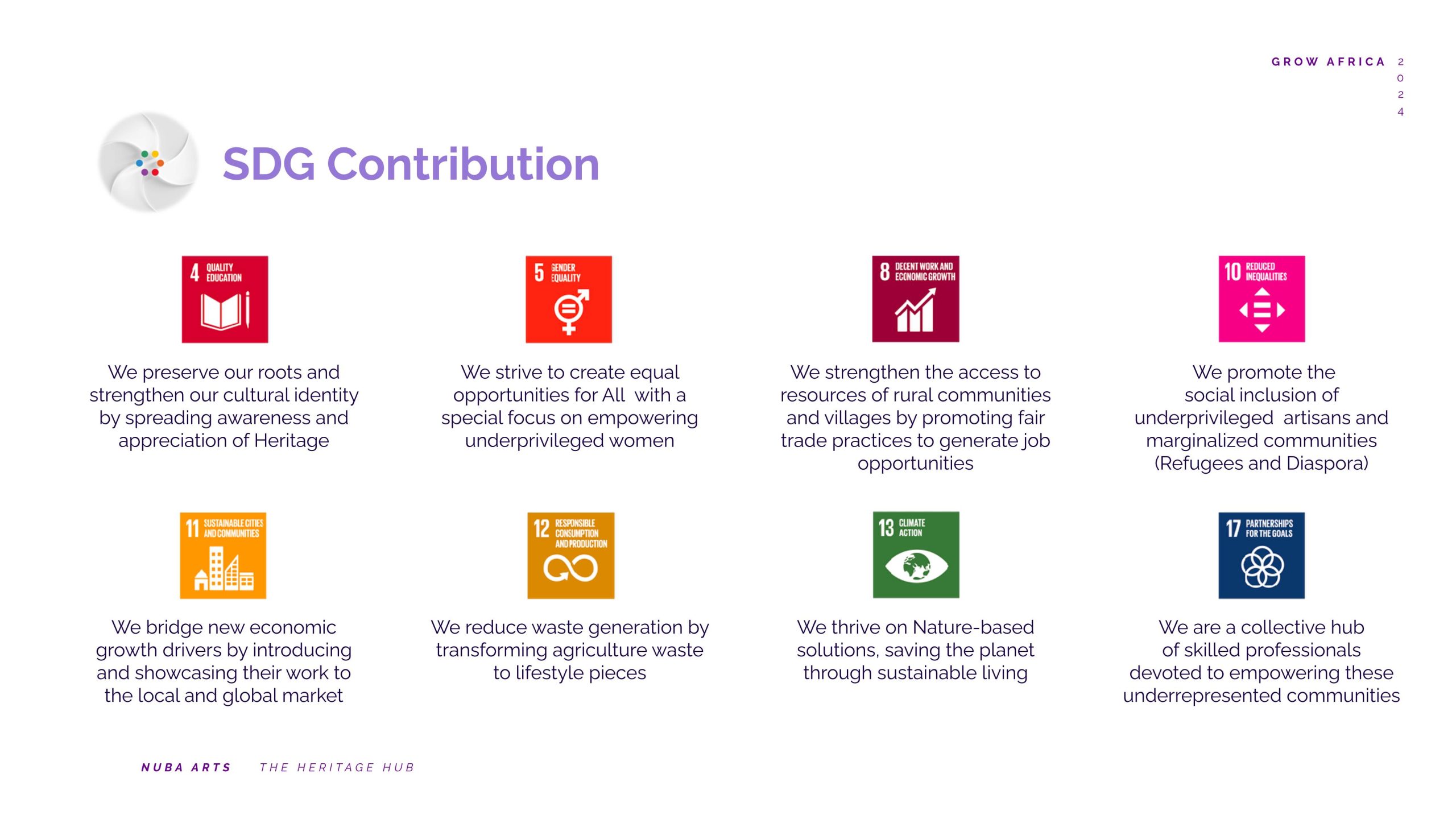
What led to you changing career paths and retiring from the United Nations?
The truth is that after 22 years of learning in the UN – as I took the UN as a learning path, not as a career – I realized that we can’t do that much from this side of the fence because the UN is about policy. People think that we can change the world but we can’t. But we can change the policy, we can educate people about what to do, how to do the right thing. But when I realized that it stops there, I said maybe it’s about time I use some of the energy that I’m still having in my 50s, to really start to implement what I learned. And that’s the reason why I resigned. I felt like I had learned enough for me to go out there and take action. But I cannot do this by myself, so I kept on the ties with the UN. That’s why I’m here (in the UN HQ) today. But I’m 100% private sector now, according to the UN. This change of career made me really realize how much we can dig deeper in the roots and bring it up. Because I can tell you about policies from now and into next year. They’ve been always talking about 100 years of policies. But then what are we going to do with all this? We have to do something. So, that’s the short version of why I left the UN. And I also have kids. And both work and family are important.
You worked in the UN Secretary General’s office and served 2 different SGs. Tell us what that experience was like
Working at the SG’s office is always very challenging because you have to follow all the rules and the processes of the administration. So working with two successive Secretary Generals was a learning experience. For instance, the first Secretary General, Ban Ki-Moon was Korean. His cabinet was Korean and mostly from the Ministry of Defense. So you can imagine how everything was strict and there was no room for mistakes. And also with the first Secretary General, Ban Ki -moon, it was my first encounter with the whole climate change issue. He was amazing, he was such a mentor and he taught us a lot about how to handle situations and negotiations. It was very tough adhering to all these processes and encountering these new born climate change issues for the first time. But seeing how challenges were handled was a big learning experience for me. And also, I got the chance through this first Secretary General to start leading the organization of the climate change engagements. And that gave me a lot in my career. My experience with the second Secretary General, António Guterres, was a shorter stint and it was very different because again, you learn new ways of doing things. You have to interact with a new cabinet. He was Portuguese and he had served as a prime minister. Somehow, it was lighter compared to the Ministry of Defence kind of environment under his predecessor. So it was totally different. This was when we saw how reforms are put together. We witnessed a reduction in delegates for travels and it was another opportunity to learn. I will definitely say that working with different Secretary Generals gave me a lot of insight on how the political kitchen is handled and it taught me different ways of solving or handling issues. But to add one more thing. Working in the Secretary General’s office is extremely challenging because there is no room at all for mistakes. So you quickly learn how to handle problems making almost zero mistakes. And that was a big learning process while working with both of them. It doesn’t matter who the Secretary General is, what matters is that once you work in this office, you make zero mistakes.
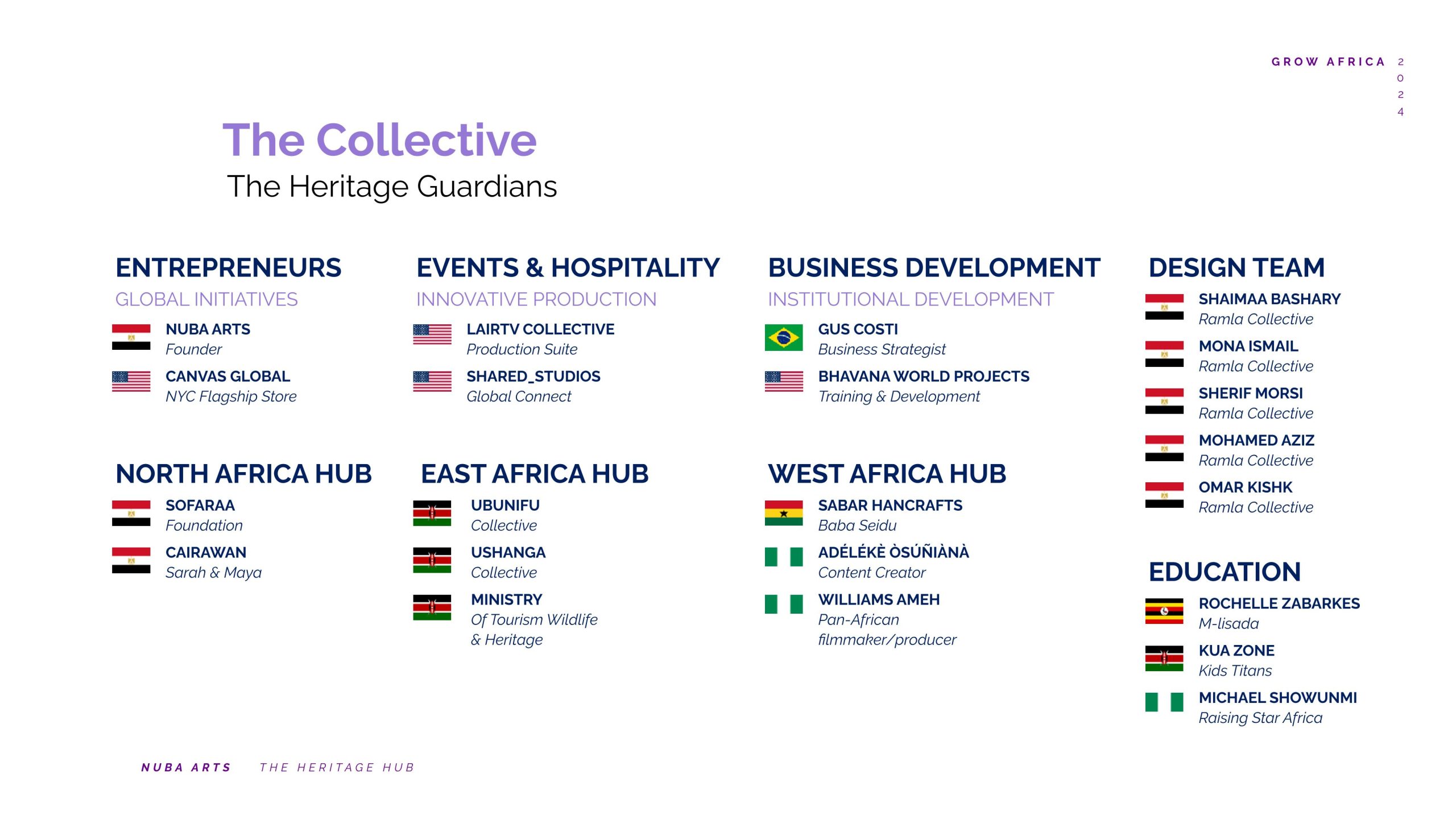
Have you always had an interest in art? And have you always had a passion for sustainability?
The interest in art started because of my mum. As I mentioned, we lived in a very middle class area but my mum started working in the private sector at an early age. So, she was always very well dressed. She was always well colour coordinated. And then because she did not have lots of money, she sewed a lot of her clothes. All this eventually influenced my interest in fashion. Soon, I was all about fashion. And then when I started working at the UN, I went to work in some very harsh missions. I did Iraq in 2004, which was during the war. The one day that we went to the market, where they were selling Saddam Hussein stuff that they had found in the palace, the market was bombed literally half an hour after we left. So the image in my head of all these semi treasures, right, because you can imagine what was in Saddam Hussein’s palace. Unbelievable stuff. And they are all heritage based. We too bought stuff from them. So in my head, all these treasures are just gone. Nobody knows anything about it. They’re gone. And when I went to Mali, it was a similar thing. I would go and sit with the corn lady and as she spoke in her language and I spoke in French, somehow we were able to communicate. While she was handling her corn I would look around and see all these weavers and the people working with the wheat and the beads and they were just so happy. But the craft that they were engaging in is the real treasure. However, nobody was helping them by taking these handcrafted items somewhere else or to the city. So that is how the love for art started to really grow inside of me. Now, the passion for sustainability came because for 10 years in my career I was in charge of organizing the Secretary General’s engagement on everything concerning climate change. We were his climate change team so I was so exposed to the issues, the solutions and what we can do. So, having looked at the earth and the sustainability issue, I found that our ancestors taught us hundreds of years ago how to actually save the planet because they had lived along the Nile and other rivers where they weaved the bamboo into baskets and various everyday lifestyle stuff, home decor etc. They crafted things out of dry leaves and also planted and there was nothing like climate change even just a 100 years ago. So something was happening there, right? Therefore why can’t we just take the right of what they did and add it to these beautiful policies that the UN is coming up with and implement it? And that’s what happened. And when I started digging further, I found that our Nubian people, our Kenyan tribes and people in Ghana are really using the leaf. Nothing but the leaf. And this leaf is the number one cause of fire for farmers. Yet if we take it and we start weaving it, we will; one, take the fire away; two, give sustainable work for the women because they and the girls are mainly the ones working; and three, we will be able to educate the people and likes of Mr. Yves Saint Laurent in the fashion industry that we exist, and that we have stuff that can be way more beautiful than others. So this is the gap that I am looking to fill. I will also like to mention here that Nuba Arts is already a member of or partner to a few highly influential organisations such as the UN Department of Economic and Social Affairs, the UN Women’s Guild, the UN Conscious Fashion Network and is also in the process of hopefully becoming a member of the African Women Leaders Network (AWLN).
How popular is African art and culture outside of Africa?
It’s not popular. That’s the truth. It’s not popular at all. Going by what I see, that is meant to represent the African culture and heritage – just a couple of garments that look African which are full of red, green and blue, that’s not Africa. Sorry, that’s not Africa. So it’s zero. There is no store here in New York that you can go to and you as an African will say, oh wow, this is what Africa is. This is Ghana and this is Kenya. No, no. Nothing like that. Just items that have no identity that they call ‘African’. And then we always talk of course, about the African Americans and the diaspora. And I really hate this word because we are not diaspora. We are not. We have roots, we have our arts, but we have a problem in showing our art to the world. We have become lazy and only show the traditional stuff that everybody knows about. That’s the problem. So it’s zero. And I think we have a lot to do. A lot to do. And I’m not talking only about selling products in stores. I’m talking about transforming events to look truly African. Not look like Africa made in China. Transforming the hotel so that when you go to a hotel, you find a little basket that has your teabags in it and it’s made in Africa. So the whole living experience should just be transformed, in my opinion. And this is where we are going to make this whole change, slowly but surely.
Nuba Arts appears to have a particular focus on artisans living with physical challenges, those who are underprivileged and those who live in rural areas, where they have no access to the city. Tell us a little bit about this.
When I started as a solo partner – and I am still alone – I found that I was just one drop in the ocean of fashion. Then I asked myself, what will make me different from others? Not in the commercial way, but in the helping way. How can I help differently? I found that there were lots of big designers. They would look at the designer who lives in Brooklyn. Like right next door. It could well be an African designer with amazing and beautiful things, but he’s just here, he’s not there. So I started looking into how I can reach out to the deepest of the deepest. And I found that reaching NGOs would be the best way. I speak three languages. So I used my Arabic, and I said, I’m going to look inside Egypt. And believe it or not, I have never met my designers. And I have about 25 designers, but up till now, I’ve never met them. Some of them I haven’t even seen on video. But I started looking into keywords, NGOs for the blind, artisans with disabilities, you know, these kinds of keywords. And the first one I found was for the blind. A visually impaired group that is weaving with braille language, and they are making the Kareem rugs from scratch. And that was the beginning. And I said, no, these are the people that I will focus on.
Because if they exist, that means there are thousands of them that exist somehow, somewhere, and I’ll just have to look for them. And this is how I started focusing on these types of artisans. In Egypt, you find lots, and I’m sure in Nigeria and everywhere, in the old markets, you will always find the artisans who are still there since their grandparents left them. And they’ve never gone anywhere. Now, the big designers, the glamorous ones, go there, make them do their pieces, give them the least amount of money, and then go and sell them for thousands of dollars or pounds. And I said, no, you’re going to do it yourself. We, Nuba Arts and partners shall be the designers and the African artisans will get paid from royalties. But at least, give me a design that this small artisan can work with so he or she can give you the best. That was the technique I used and it worked perfectly. Because now, we can say that 100% of all artisans are not known, are underprivileged, and are the underrepresented. But now we are flipping the pyramid and we are representing them. So digging deep, like when we plant a seed, you have to dig deep. That’s exactly what I did. And it’s amazing, the treasure that I found. Nuba is not Nuba land. Nuba means the land of gold skills, because the word Nuba means the land of gold. Nubia is gold, Nuba is land of gold, and in my view, Africa is the land of gold skills. It has lots of skills. This is the translation. We make carpets, you make rugs, you make clothes, we make everything. But when I say we, I don’t make, I source. Right now, we have home decor under which we have the baskets and the bags and everything in the house that is weaved. And the rugs as well. And then we have other items such as accessories, women’s accessories and apparel that is made of ‘no waste’ material. So any small thing that is made with textile. But we do not waste the textile. Or the rug. And in Sinai, for example, in the peninsula of Sinai in Egypt, where you will find the Bedouins, they work with stitches and instead of the wasted thread just lying fallow, we use the waste thread. So when they make the big pieces, we use the waste thread to make our own small pieces. Right now I’m even trying to change all the big pieces to smaller ones and use them to make souvenirs that we can give them at dinners and lunches here at the UN. So the plan is to also convert the waste material into beautiful pieces that can be used to decorate their events and gatherings. And we have many artisans who are ready to go.
It is quite apparent that Nuba Arts has an educational agenda at its core? But kindly explain the link between raising awareness about the African solutions in sustainable fashion and education?
Right, this is my favorite question. And I think that everything in life has an educational aspect in it, right? And educating people the UN style, by sitting in a room and talking to them or lecturing them, that has limited impact. But educating people through awareness, through making them use a basket piece or a garment, making them understand where it comes from, that’s also education, but a different kind of education. So, I think you can do that through art. Perhaps the closest example to this is music, right? Nobody cares where the music is coming from or if you understand the lyrics, but they like it, they understand that it’s African music.
So, this is what I want to do with art. It’s the same thing. You can wear an African dress and you say, Wow, this is coming from Ghana because Ghana is in West Africa, not in East Africa. And from that, awareness will gradually come. The other thing is our kids, especially the ones like mine who live in the Western side of the world. They need to be educated well about Africa and you cannot make them sit and tell them, well, you know, my grandpa used to do this and this and that, they’re not going to listen. So you have to give it to them in the lifestyle. You need to embed it in the lifestyle. and that’s what art can do. This is what accessories can do, what the home decor can do. One of my first clients who bought the Bolga basket was Japanese, so you can imagine how the whole story must have been like for her. The education part in Nuba art is through the events that we are putting together. Right now we are in the process of trying to become the representative of the Model UN organized by a private sector because there is the UN Model UN, but we are now trying to organize it on our own. And the reason why we are doing this is because we feel that the African students need to be exposed to the West, to the US and to the UN. And vice versa, the US and Western students need to meet the African students. If you are sitting here in the model UN, you will always see that it’s all about the privileged students. And what we are trying to do is that we will have a portion of the privileged students and whoever is paying or sponsoring them will have to sponsor the same amount of students from Africa too. So the students from Harvard will be sitting next to a student from Tanzania because they need to meet. If they don’t meet, they will always think differently about each other. Now, this is an education in itself. For Nuba Arts, this is not our core work, but it is the events side of Nuba. So through events, in addition to selling products, I believe that the process of educating, creating awareness and letting people know about Africa, will come from here. And when I say events, again, having relations with the UN, I decided to only partner with organizations. I do not partner with countries, so as to avoid political problems. African Union, the African Womzen Leaders Network. These are the groups I mean. So when in May, we organize Africa Day, all African nations have to be represented. So this is kind of a UN way of thinking, but at the private sector level. But education is a must for grownups and for students, both. It’s a must. And we have to emphasize this every time we are doing it. The African Union this year has education as its main theme. So we are using all this year to emphasize on education, arts included.
In which countries is Nuba art currently active? And any interest in Nigeria?
Fully interested in Nigeria. So Nuba art has put together what I started calling the Heritage Hub. So the Heritage Hub consists of the hubs in different African countries. Egypt, Ghana, Kenya. They are my first three pilot projects as an artisans hub, if you want to call it that. So, the products are currently coming from these three countries. I started partnering with some organizations here in the States, who are training artisans from Madagascar, Uganda, and Angola. And I have also started buying from these artisans and getting in touch with them at the expiration of the program. Now, they are ready with the quality control. Nigeria is what I will call my think tank hub. Nigeria has been different for me because everyone I met from Nigeria has given me this intellectual input. So my team in Nigeria includes content management and the people in charge of the website.
So, they are not artisans, but they are more at the management of things. I would love to start getting products from Nigeria but I do not have the connections there yet. But these are the three countries where we are currently active, Egypt, Kenya and Ghana. Hopefully we will be able to expand to all Africa, given that I’m also trying to open the market here, right? So yeah, this is where we are now.
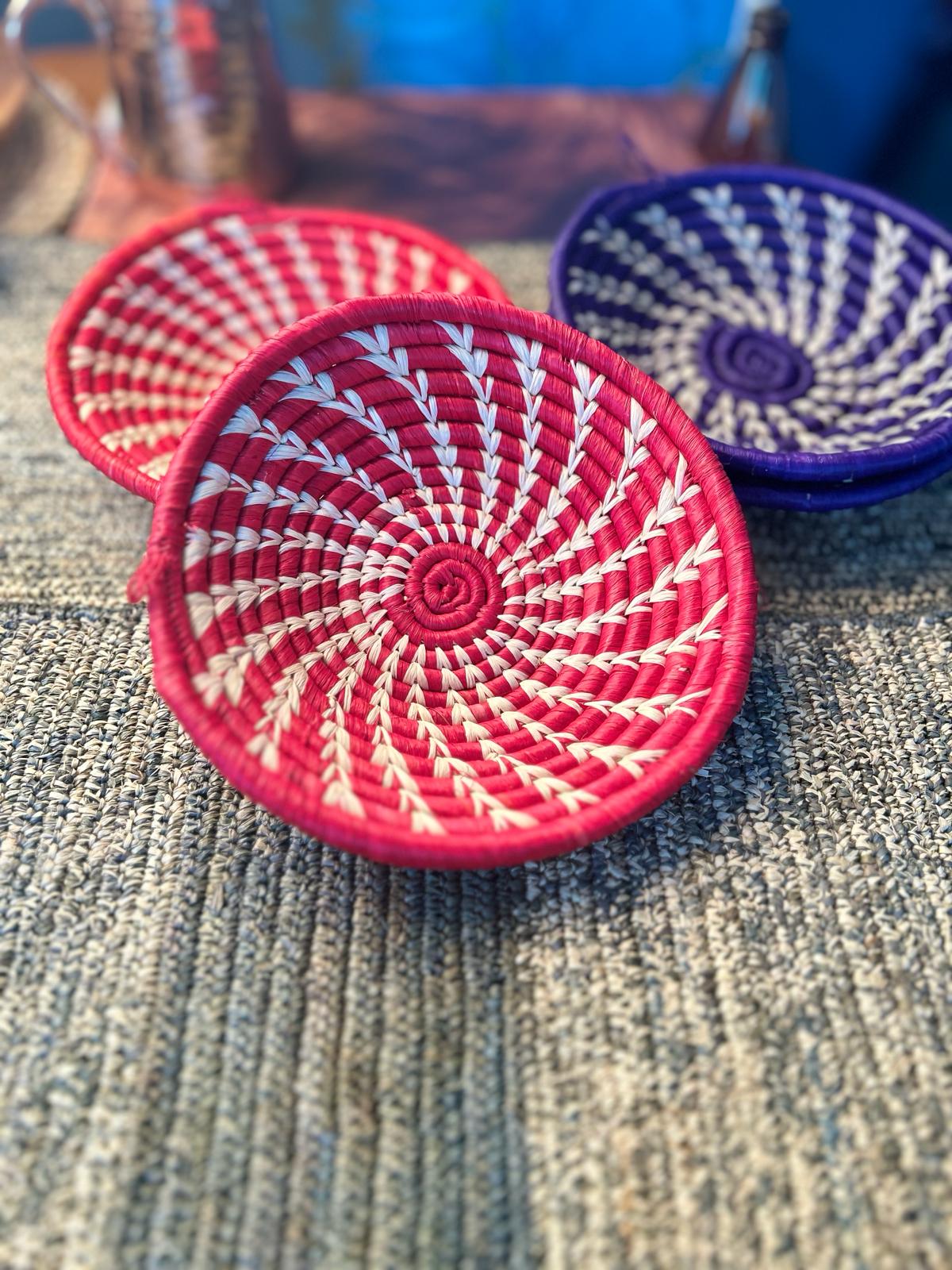
To Heba, what would success look like?
What would it look like? Wow. That’s a hard one. You know, success to me is when I reach my goal together with everyone on this ship with me. When I see that we have made our first milestone step together and I see these women from the south of the south of the south on a screen somewhere in the US. To me, that would be success. I want to see these people connected and recognized and then I will be happy to go, because I’m sure that God created us for these kinds of reasons. I want to see the smile on the faces of these ladies, like Wow, are we really here? That would mean success for me. That would be amazing.
____________________ Heba Abdelatif was born and raised in Cairo, Egypt. I grew up in a Nubian home in the heart of Cairo, where some neighborhoods are known as the center of the Nubian communities. My family was one of the middle-class families with big dreams for their kids, so they decided to invest in our education. My sister and I were one of the very few Nubian girls who were able to learn in a French school Lycée Français du Caire, one of the oldest and largest French schools in Egypt. I was raised by French professors who even resided inside the school. I had a dream to work in Tourism, studied Egyptology, and succeeded in this amazing career. I became one of the youngest VPs of a multinational travel agency in Egypt working with the Hong Kong market for inbound group trips to Egypt, operating weekly. The move to the US was the milestone that allowed me to start a new path. 1999-2001 –Kuwait mission to the UN. 2001-2022 United Nations HQ in New York. During my time at the UN, I made it a priority to work in different departments for one to two years each to learn their operations. Joined political missions during and post-war. 2004 Iraq – Our team established the First electoral assistance commission in Iraq. 2011 Mali – Our team of 8 was deployed to assist in the transition from a political mission to a Peacekeeping mission. 2013 – Yemen – Office of the Special Envoy to Yemen – when we organized the national dialogue. 2017 – Jordan/Yemen to establish the Special Envoy office for Yemen in Jordan due to the unstable condition in Yemen. Events organization 2008 – 2015: From Poznan to Paris – In charge of handling the organizational aspect of the UN Secretary-General’s engagement on Climate Change (Both former and current SGs) 2008 - Led the organization of the first Climate Summit attended by over 100 Heads of State and Governments. 2016 - Led the organization of the first World Humanitarian Summit in Istanbul Turkey. 2019 - Led the organization of the 2019 UN Climate Action Summit. 2020 - 2022 Participated in the reform of the UN Resident Coordination system by establishing 120 UN offices worldwide. 2022 Resigned from the UN to found Nuba Arts, with a determination to bridge the gap between micro businesses and artisans with challenged abilities to the Global Market. From a dry leaf to a sustainable life, focusing on the revival of the African heritage and raising awareness on the solutions that our ancestors left for us. Changing the face of organizing events to promote the concept of sustainable events, where all tools are locally sourced. I am currently in the process of organizing a Model UN where African students from the least developed countries will be able to attend and participate in the UN Arena. https://www.nubaarts.com https://www.linkedin.com/company/nubaarts/ Facebook: Nuba Arts

































































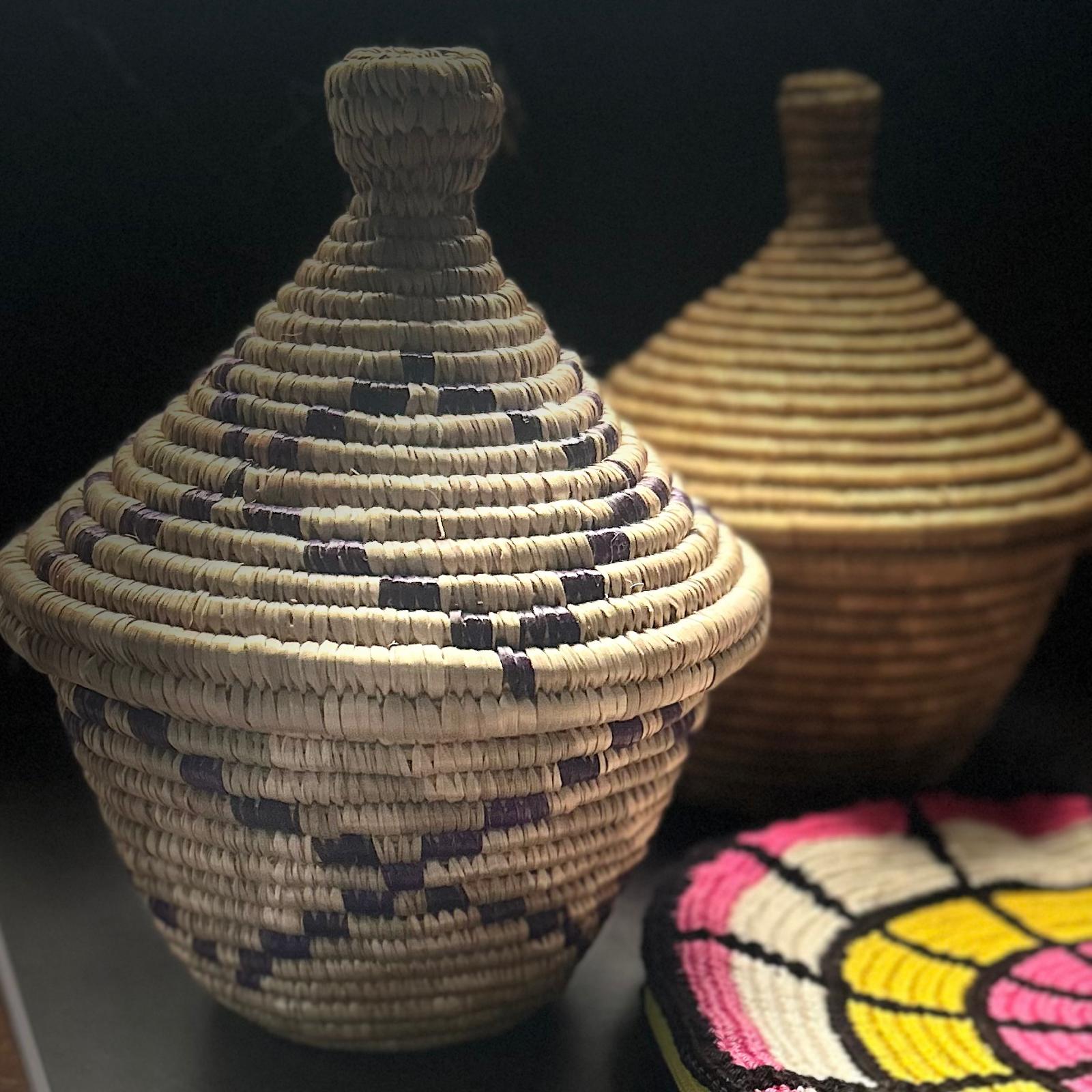

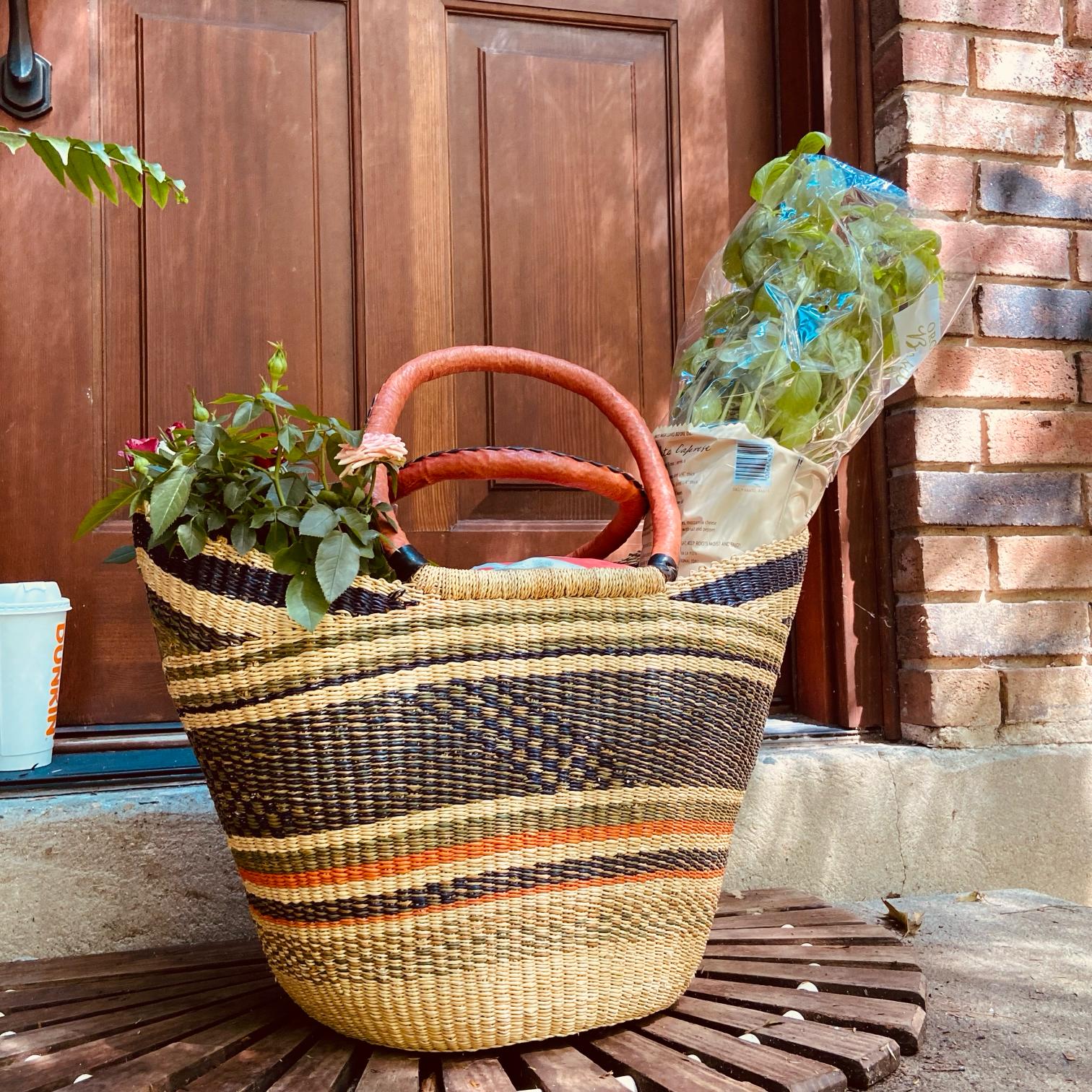
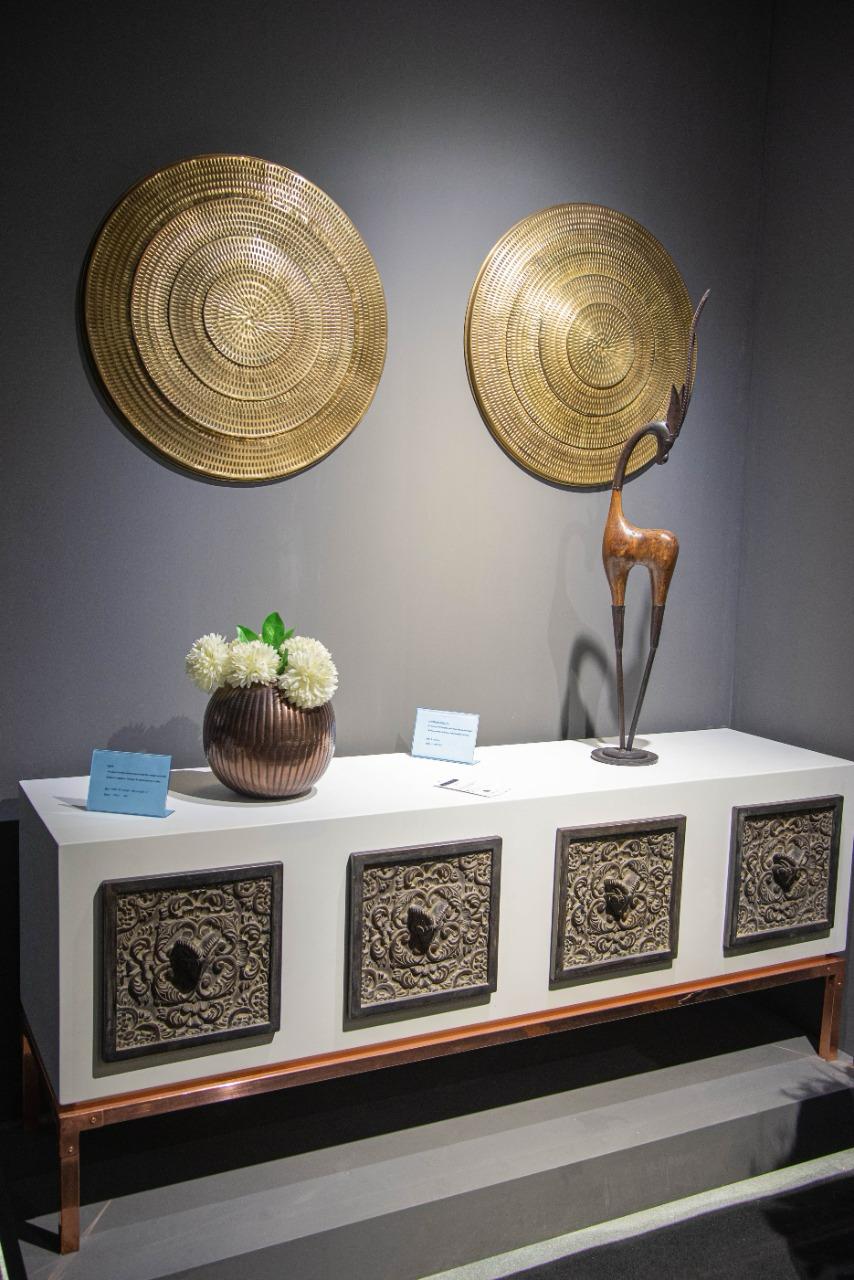


 EduTimes Africa, a product of Education Times Africa, is a magazine publication that aims to lend its support to close the yawning gap in Africa's educational development.
EduTimes Africa, a product of Education Times Africa, is a magazine publication that aims to lend its support to close the yawning gap in Africa's educational development.



